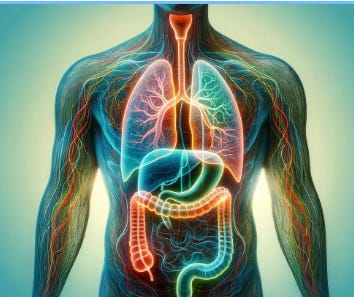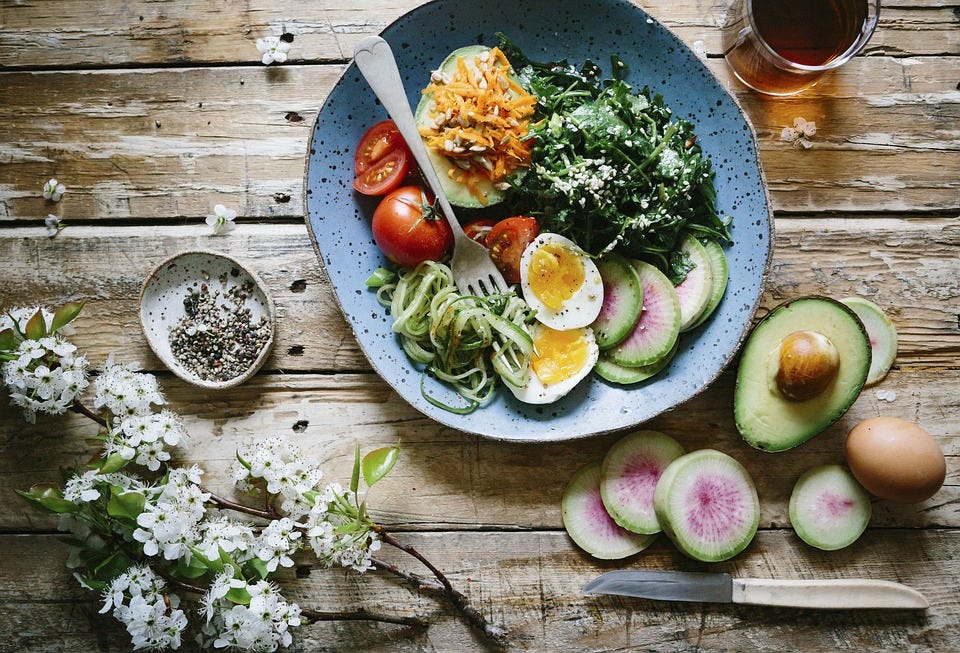It’s well known that eating nutritionally sound food plays a key role in health and well being. Historically, mental health conditions have been treated with therapies like counseling, medication, and sometimes hospitalization. Not exactly a holistic approach, but today experts are looking at how diet and nutrition affect the way people feel mentally, supporting treatment with diet and lifestyle changes.
There’s a clear link between food that travels through the digestive system and the brain. Certain nutritious foods have the capability to positively influence our mood by promoting gut health, nourishing the trillions of living microbes that have many functions in the body, such as synthesizing neurotransmitters that send chemical messages to the brain to regulate sleep, pain, appetite, mood and emotion.
This intricate network of interactions is so powerful, it’s even has been nicknamed the “second brain,” or gut-brain connection, and if not treated properly, it can play a huge role in depression (Source 1, Source 2).
Foods That Exacerbate Bad Moods
Eating ultra-processed foods regularly has been linked to a higher incidence of symptoms associated with stress, depression and anxiety. A few substances in particular that might exacerbate anxiety symptoms are junk foods, sugars, excess refined salt and rancid fats, excess alcohol, refined starches, fried foods, processed meats, sweetened beverages and so on.
But there is also good evidence that certain healthy dietary patterns may help reduce symptoms of depression, anxiety, and mood in general. Learn to choose more foods that may reduce inflammation and stress throughout the body, such as fiber-rich fruits and veggies, unsaturated fats, and fermented foods (Source 1, Source 2, Source 3, Source 4).
In another study, when scientists looked at an “Antidepressant Food Score (AFS)”, they found that those foods with the highest nutrient density best support the role in depressive disorders.
By ranking foods and highlighting categories with a high density of nutrients beneficial for depression, you can easily use them as a dietary pattern of your choosing.
Table 1
Food categories and mean antidepressant food score:
Vegetables 48%
Organ meats 25%
Fruits 20%
Seafood 16%
Legumes 8%
Meats 8%
Grains 5%
Nuts & seeds 5%
Dairy 3%
AFS: Antidepressant food score
Simply pick those foods with the highest nutrient score to help your mood and eat a well-balanced diet. Eating more fruits and vegetables is especially linked with less worry, lower tension, and greater life satisfaction.
Some More Tips
Consistency in maintaining a high-quality diet over time is your best choice. Do your best to incorporate a diverse range of nutritious whole foods into your meals, steering clear of processed, canned, or unhealthy restaurant options.
You should also focus on prebiotics that provide nutrition to the bacteria already living in your gut, and probiotics that contain healthy bacteria themselves to maintain a balances state of homeostasis (stability) in the gut. Research suggests they may play a role in the body’s response to stress and depression.
Sources:
Fermented foods: yogurt, kefir, buttermilk, kimchi, sauerkraut, tempeh, kombucha
Alliums: garlic, onions, leeks
Vegetables: artichokes and asparagus
Fruits: apples and bananas
Grains: whole barley and oats
Start with some small changes, like one extra piece of fruit every day or limiting yourself to less sugary beverages per week. Then try swapping whole foods for the packaged and processed variety; whole grains instead of refined grains; whole fruits instead of dried fruits and juices; fruit infused waters instead of soda, and kombucha or herbal tea instead of alcohol.
It will take some time to notice changes changes to your mental outlook. Be patient, keep monitoring your progress and stay consistent. Good results will soon follow!







